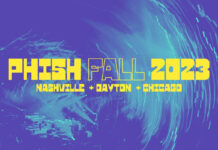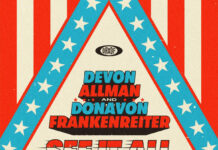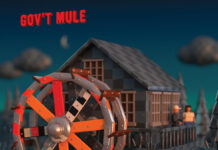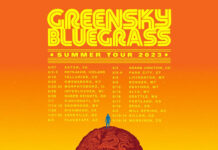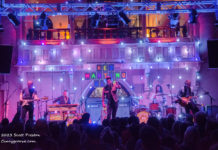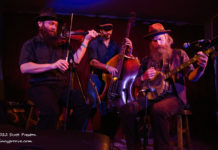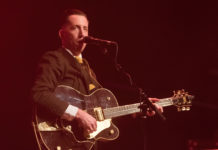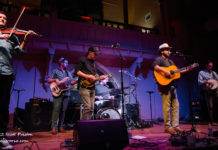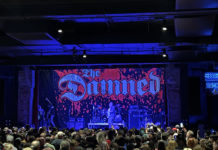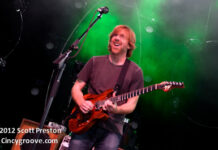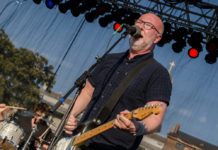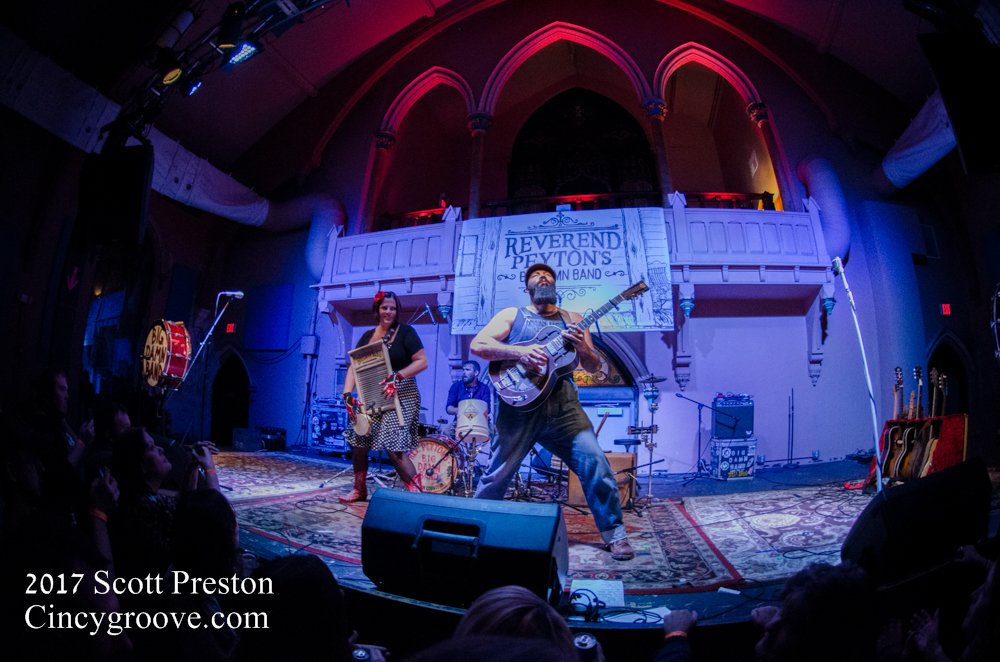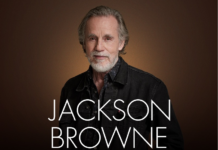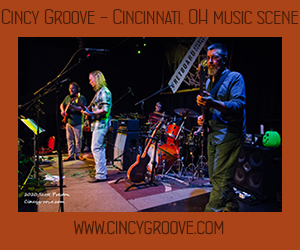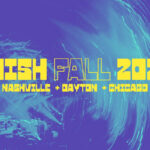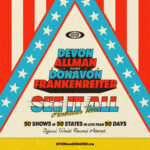BOSTON, Mass. — Woody Guthrie may be more popular in the 21st century than he ever was in the 20th. The unexpected success of Mermaid Avenue — the 1998 and 2000 albums of Woody Guthrie lyrics set to music by Billy Bragg, Wilco and others —have sparked a resurgence of interest in Guthrie’s own recordings. Several fine anthologies have been released in this new century, but only this year has the ultimate treasure trove of the songwriter’s earliest recordings been unlocked and shared with the wider world.
Woody Guthrie: American Radical Patriot, set for release on Rounder Records on October 22, 2013 in time for holiday gift giving, will prove a revelation to even the most devoted Guthrie fan, for it unveils hours of songs, interviews and even radio dramas that the general public has never heard.
In 1940, a 27-year-old Guthrie recorded his music for the first time (other than some radio airchecks) when he visited the U.S. Government’s Library of Congress and taped five hours of singing and talking with the legendary folklorist Alan Lomax. Here were many of the classic compositions that Guthrie would soon record for Folkways and RCA Victor: “So Long, It’s Been Good To Know Yuh,” “Do Re Mi,” “Pretty Boy Floyd,” “I Ain’t Got No Home” and “Hard, Ain’t It Hard.” But the stories Guthrie told Lomax about his life created a rich context for the songs, and the songs put an emotional charge into the stories.
The three-hour version of those sessions (released as The Library of Congress Recordings by Elektra in 1964 and reissued by Rounder in 1998) was justly hailed by critic Bill Friskics-Warren as “three volumes of conversation, songs and humanity that offer the most complete portrait of America’s greatest folksinger.” Now it’s an even more complete portrait. Here for the first time is the full five-hour session, presented in cleaned-up audio with a word-for-word transcript in the 258-page book (available as a PDF) that anchors this boxed set.
But the Library of Congress sessions take up only four of the six audio CDs in American Radical Patriot — and the box also includes the book, a DVD and a 78-rpm vinyl disc. Much of the material has never been encountered by any but the luckiest researchers, and taken as a complete package, the set broadens and deepens our understanding of the singer-songwriter who so profoundly influenced Bob Dylan, Bruce Springsteen, Pete Seeger, Willie Nelson, Johnny Cash, Emmylou Harris, Richie Havens, Neil Young, Ani DiFranco, Taj Mahal, U2, the Byrds, the Band and many more.
This exclusive set, limited to 5,000 copies, also includes the 17 songs Guthrie composed and recorded while an employee of the Pacific Northwest’s Bonneville Power Administration (including a never-before-released version of “Pastures of Plenty”), the five songs he composed and performed with the Almanac Singers to support the anti-fascist effort in World War II, two radio dramas that Guthrie helped write and perform for the U.S. Office of War Information, three songs from broadcasts of Jazz America, 10 songs he composed and performed for the U.S. Public Health Service’s anti-venereal disease campaign and a health-themed radio drama that he helped write and perform for Columbia University. The 78 disc contains Bob Dylan’s 1961 home recording of Guthrie’s “VD City” and Guthrie’s 1951 home recording of “The Greatest Thing That Man Has Ever Done.”
A connecting thread runs through this material: It’s all tied to the American government in some way, either commissioned directly by a federal agency or created to support a national military or health effort. This may surprise people who know of Guthrie as an agitator for unions, the poor and the marginalized and as a columnist for two different newspapers published by the U.S. Communist Party (though he was never a party member).
Yet Guthrie was named after a U.S. president (Woodrow Wilson) and was a consistent supporter of collective action (whether through left-wing organizations or the government’s New Deal programs like the dam-building along the Columbia River). He served more than a year in the Merchant Marine and was honorably discharged from the U.S. Army in 1946.
“Was it a paradox that a ‘radical’ would record songs for a government he opposed?” asks Bill Nowlin, the co-founder of Rounder Records who wrote the essays and notes that fill up much of this set’s book. Nowlin answered his own question by coming up with the package’s title:American Radical Patriot. But it’s the paradox of that title that Nowlin explores in depth in the full-length book that’s as central to this boxed set as the DVD or any of the CDs.
“Woody Guthrie loved his country,” asserts Nowlin. “He didn’t agree with all of the policies of the government, or the ways in which some people took advantage of others . . . But he appreciated and understood and embraced the imperfections and he seemed to have a fundamental faith that people would see to it that things got fixed, if only more people realized that there really could be better ways.”
The story of how Guthrie was born and raised in the oil-boom town of Okemah, Oklahoma, how he watched his family destroyed by fires, illness and bankruptcy, joined the Dust Bowl migration to California, and began singing for camp dances, union rallies and local radio shows has been told in multiple biographies and films as well as in Guthrie’s own three autobiographical books: Bound for Glory, Seeds of Man and House of Earth. But none of them can match the experience of hearing that story told by Guthrie himself and embellished with his own songs.
Perhaps it’s ironic that it took an American government agency, the Library of Congress, to document this oral history of a self-described “lonesome traveler.” Perhaps it’s ironic that it took another, the Bonneville Power Administration, to spur Guthrie to the most productive songwriting month of his career —“probably the best time of his life,” according to his son Arlo. Or maybe it’s not so ironic, after all. Maybe, as Nowlin suggests in his provocative essay, a democratic government was the only vehicle that could realize Guthrie’s vision of the people working together to create “the biggest thing that man has ever done.”

